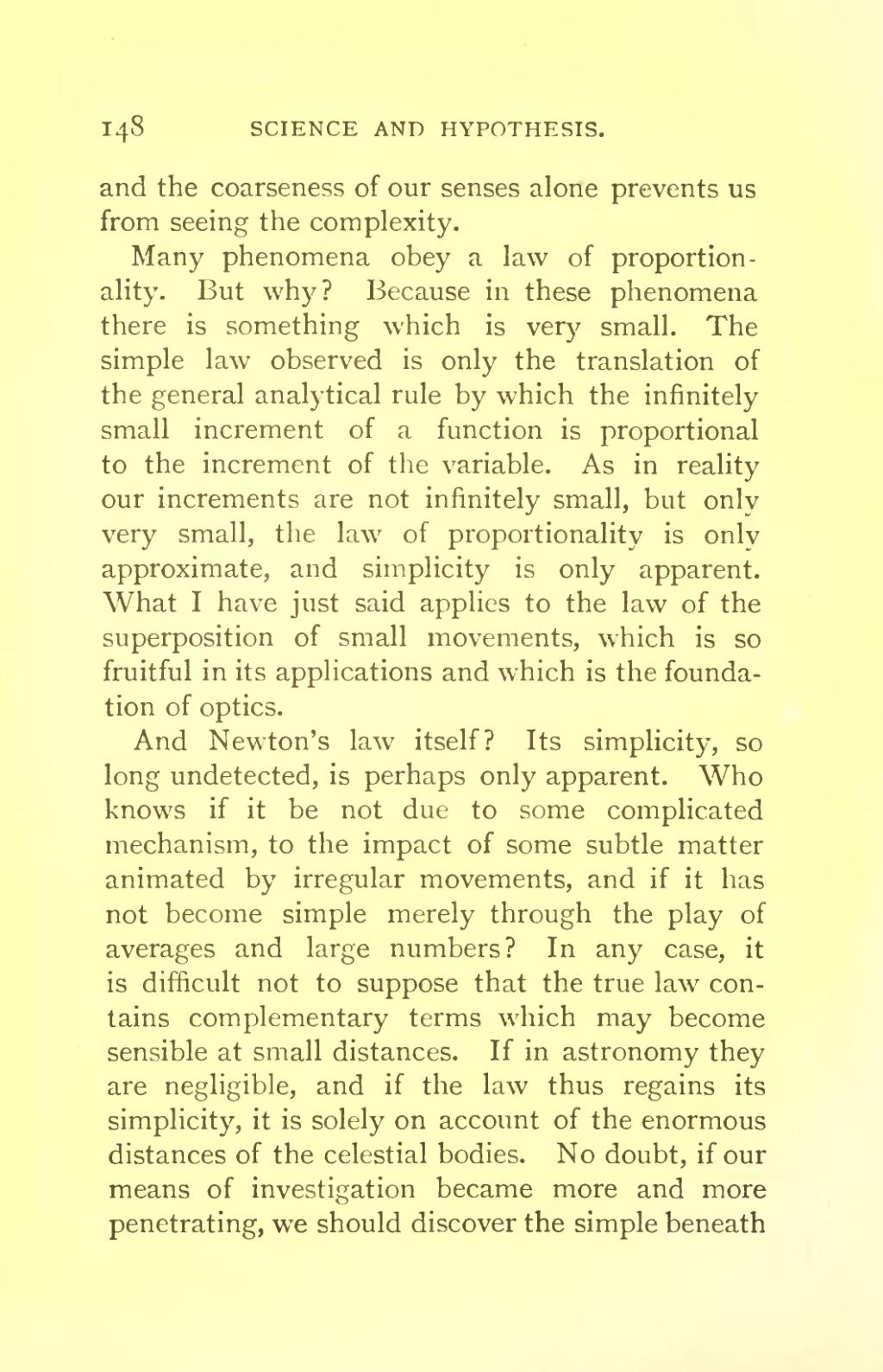and the coarseness of our senses alone prevents us from seeing the complexity.
Many phenomena obey a law of proportionality. But why? Because in these phenomena there is something which is very small. The simple law observed is only the translation of the general analytical rule by which the infinitely small increment of a function is proportional to the increment of the variable. As in reality our increments are not infinitely small, but only very small, the law of proportionality is only approximate, and simplicity is only apparent. What I have just said applies to the law of the superposition of small movements, which is so fruitful in its applications and which is the foundation of optics.
And Newton's law itself? Its simplicity, so long undetected, is perhaps only apparent. Who knows if it be not due to some complicated mechanism, to the impact of some subtle matter animated by irregular movements, and if it has not become simple merely through the play of averages and large numbers? In any case, it is difficult not to suppose that the true law contains complementary terms which may become sensible at small distances. If in astronomy they are negligible, and if the law thus regains its simplicity, it is solely on account of the enormous distances of the celestial bodies. No doubt, if our means of investigation became more and more penetrating, we should discover the simple beneath
